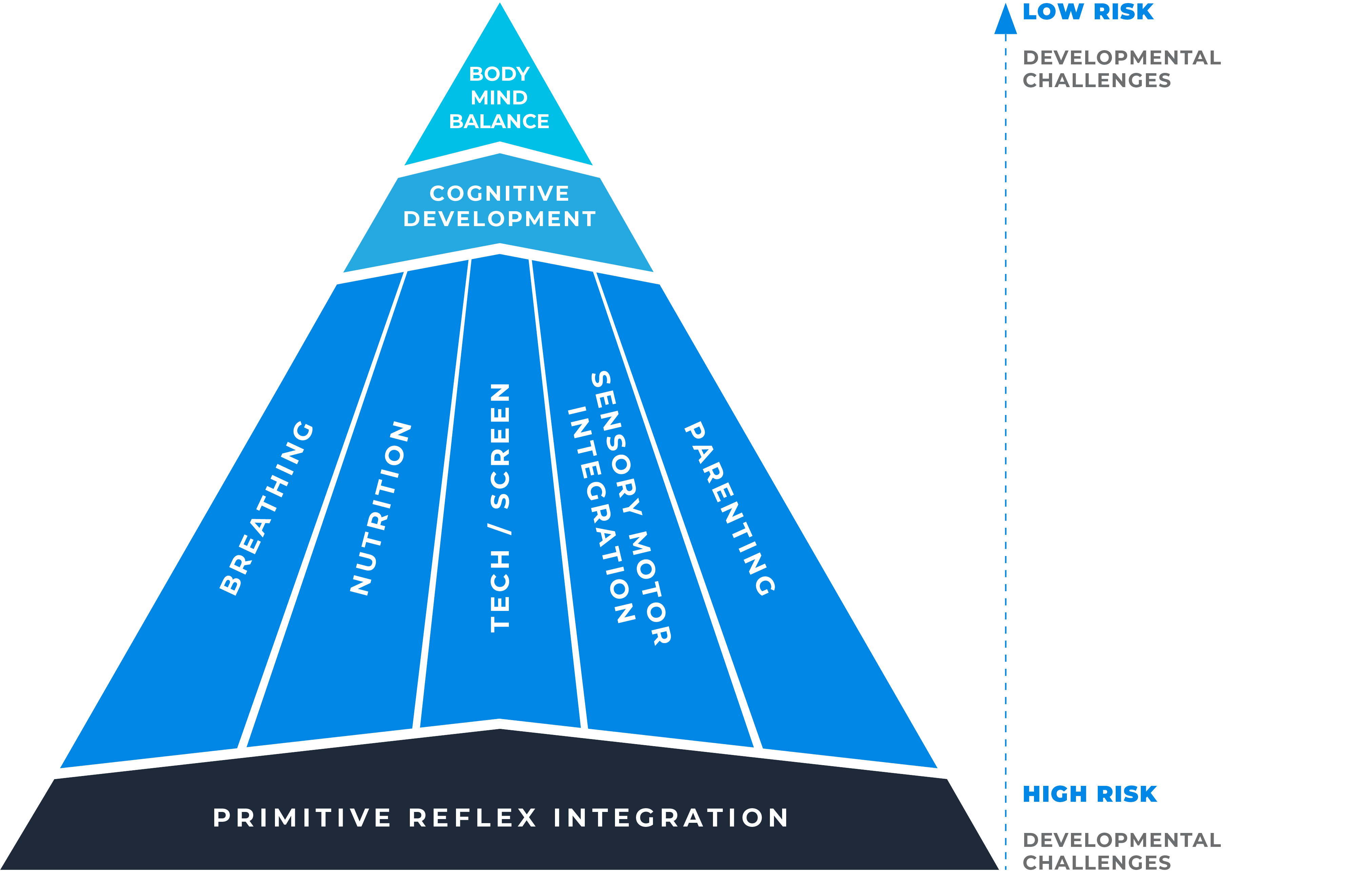Unlock Your Child's Potential and Redefine Their Future
The BrainX Method, a bottom up approach to brain development
Targeted Movement Therapy
Our evidence-based / science backed method uses precise, purposeful movements to activate neural pathways essential for integrating primitive reflexes, strengthening sensory systems, and supporting postural development.
This allows the brain to adapt naturally and aligns to the optimal development to improved behaviour, emotional regulation, learning, and physical performance.

The Development Pyramid
Our Pyramid of Healthy Brain Development is the result of 25 years of research and clinical practice, designed to address the root causes of neurodevelopmental challenges

By combining targeted brain development strategies with a nurturing environment, we help create lasting improvements in well-being and mental health.
The BrainX Method
A bottom-up approach to development
Primitive Reflex Integration
Primitive reflexes are automatic, early-life movement patterns essential for survival in infancy. If these reflexes remain active beyond early childhood, they will interfere with learning, behaviour and coordination.
We start by identifying and switching off these retained reflexes through MOVEMENT to form a solid foundation for higher brain function.
Sensory-Motor Integration and Mastering Our Environments
System Evaluation
We evaluate the sensory and motor systems to identify imbalances that affect development
We identify and address postural imbalances
This step matures neural networks, leading to improvements in focus, behaviour and learning
Lifestyle Factors
This stage addresses lifestyle factors that directly influence development and mental health:
- • Optimising breathing practices
- • Improving nutrition
- • Limiting screen time
- • Encouraging positive parenting techniques
Continual Cognitive Development
Continual cognitive development such as speech therapy, cognitive therapy, positive mindset will now have a big impact and help children to reach development goals.
The Results
The Brain's Essential Building Blocks
Primitive reflexes are automatic movements present at birth that help newborns survive and develop.
Think of them as the brain's 'training wheels' – essential for early development but meant to be outgrown. Just as training wheels must eventually be removed for a child to ride independently, primitive reflexes should integrate (switch off) to allow more advanced skills to develop.
These reflexes form the foundation for all future learning and development. When they function properly and integrate on time, children can focus their energy on acquiring new skills.
When They Remain Active
Retained reflexes can interfere with your child's development in multiple areas:
- Academic learning and concentration
Difficulty focusing, reading, or writing
- Physical coordination and balance
Clumsiness, poor posture, or motor skills
- Emotional regulation and social skills
Anxiety, overwhelm, or social challenges
- Sensory processing abilities
Over or under-sensitivity to stimuli
The BrainX Method is more than a programme—it's a pathway to unlocking your child's potential.
Your Child's Brain Can Change
The most encouraging news: The brain's remarkable ability to form new connections means positive change is always possible.
Neuroplasticity in Action
With the right stimulation, retained reflexes can be integrated at any age. Our programmes harness this natural ability through specific, targeted movements that encourage the brain to complete the integration process it started in infancy.

Ready to Learn More?
Understanding these 10 key reflexes can provide clarity on your child's challenges and our path forward.
